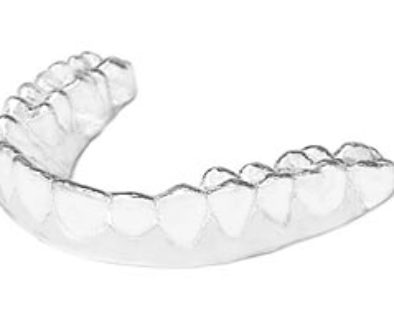Wisdom Teeth Recovery
 I get a lot of questions from my patients about what to expect after having their wisdom teeth removed and what they can do to make the recovery as easy as possible. It’s important to understand that the answers to these questions can be a big, “It Depends”, based on your age, if your wisdom teeth were impacted, how the surgery went, etc. Keeping that in mind, let’s take a look at some of the most frequently asked questions about wisdom teeth.
I get a lot of questions from my patients about what to expect after having their wisdom teeth removed and what they can do to make the recovery as easy as possible. It’s important to understand that the answers to these questions can be a big, “It Depends”, based on your age, if your wisdom teeth were impacted, how the surgery went, etc. Keeping that in mind, let’s take a look at some of the most frequently asked questions about wisdom teeth.
Why do dentists usually recommend you get your wisdom teeth out?
Most people don’t have enough space in their jaw for wisdom teeth. Even the people that do have space generally have a lot of difficulty in keeping the teeth clean and cavity free and eventually end up needing them removed at some point. Your ability to chew effectively isn’t reduced at all if you have your wisdom teeth out and recovery from your wisdom tooth surgery is the easiest in your late teenage years, before the wisdom teeth have erupted all the way into place.
Is there anything I can do before the surgery to help with the pain afterwards?
Some studies have shown that taking Ibuprofen prior to your surgery can actually help reduce pain afterwards. Ask your dentist or surgeon if this is something they would recommend.
Should I be sedated to get my wisdom teeth out?
This is a really personal decision. Some people are just fine being awake for the process but I’ve found that most people, if given the choice, would rather not remember the process. The surgeon will numb you but you still feel the pressure and hear all the noises. If you’re not sure you can handle it being awake, definitely go for the sedation.
Will my cheeks swell up afterwards?
Most people who have impacted wisdom teeth taken out will develop some amount of swelling in their cheeks. This can range from very minor swelling to very large swelling that looks like a chipmunk’s cheeks. Icing the area immediately after surgery can help reduce a lot of this swelling.
How long will my stitches stay in?
Most surgeons use stitches that dissolve on their own so that you don’t have to go back to get them taken out. These stitches usually last anywhere from a few days to a few weeks. If you notice your stitches come out early (within the first couple of days), don’t be too concerned. As long as your gum tissue has healed sufficiently to stay in place on it’s own, there is no need for any more stitches. The tissue usually has healed to this level within just a couple of days.
How much pain will I be in?
The pain peaks in the first 24-48 hours after surgery and then drops off significantly after that. The best thing you can do is to take your pain medication on a schedule. If the prescription recommends taking it every 6 hours, then take it every 6 hours at least for the first couple of days. Staying ahead of the pain works far better than letting it get out of control and then taking medication.
Will the pain medication make me drowsy?
Most surgeons will prescribe a narcotic pain medication (usually something containing hydrocodone or oxycodone such as Vicodin or Percocet). These pain medications can definitely make you drowsy and I would not recommend driving or using heavy equipment or power tools while on them. If you would prefer not to take a narcotic, Ibuprofen is the best over the counter option for the pain. You should take 600 to 800 mg every 6 hours and this generally works very well for pain control. Again, you want to take this on a schedule for the first couple of days in order to stay ahead of the pain.
How do I take care of where the teeth came out?
No smoking, no straws, and no spitting. All of these can cause a dry socket (see below). Try to avoid all of them for a minimum of three days and a week would be even better. Other than that, avoid anything acidic or spicy as these can cause a very painful burning sensation. If your surgeon gave you a syringe to irrigate the area, make sure you do that for about a week. This will keep any debris from getting lodged in the socket where the tooth came out.
It was starting to feel better then it started hurting again and I’m afraid it’s infected! What do I do?
It’s pretty rare to have an infection afterwards. What you’ve most likely developed is a dry socket. This is the most common complication of having wisdom teeth out (especially the ones in the bottom jaw). A dry socket is when the blood clot that was in the tooth socket is lost and the bone becomes exposed. This causes pretty severe pain. Dry sockets usually happen 3-5 days after surgery and take anywhere between 1-5 weeks to resolve completely. Most resolve within a week or so with no treatment. Check out our DIY guide on treating a dry socket. If you do end up going back to the surgeon, they’ll likely pack the area with a special medication that should help to reduce the pain. The most important thing to remember with a dry socket is that while it is very painful, it isn’t dangerous to your health in any way and it will go away on it’s own with some time.
My tongue or lip are still numb the day after the surgery!
This is known as a paresthesia. Wisdom teeth are often in close proximity to several of the nerves of your lower jaw. During the surgery these nerves will occasionally become damaged leading to your tongue or lip becoming all or partially numb. It isn’t the fault of the surgeon… it is simply a complication that happens sometimes. 90% of paresthesias will heal on their own within a year or so. The nerve fibers grow back very slowly. In rare cases the paresthesia will last forever.
My jaw is super sore afterwards when I open and close my mouth. Is that normal?
The injection needed in order to get the bottom wisdom teeth numb has to go through a couple of muscles that help open and close the jaw. This can cause some residual soreness for a couple of weeks and is perfectly normal. You can also develop some level of TMJ pain due to being open for a long surgery. Again, this usually resolves on its own.



